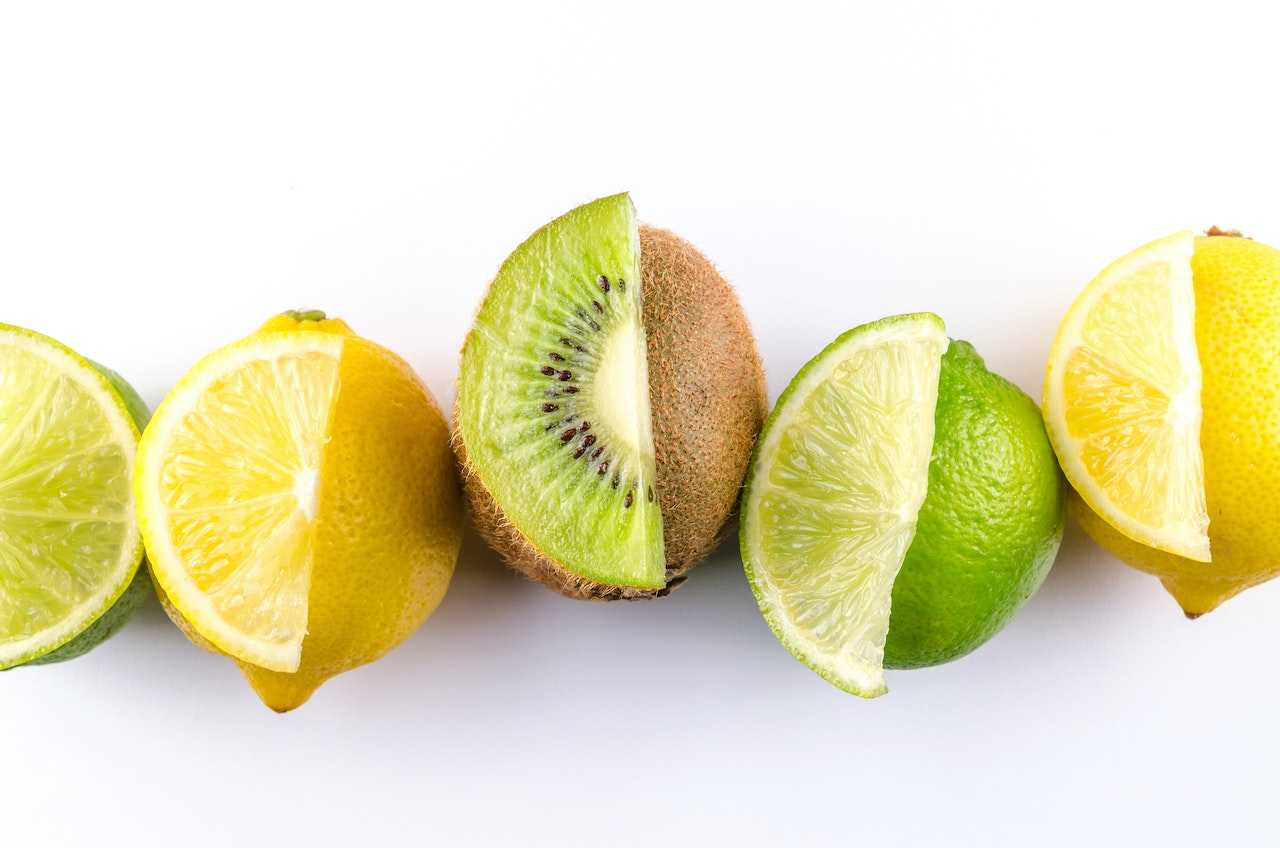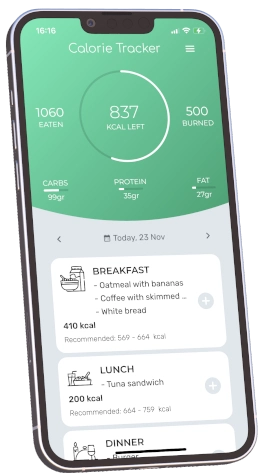Keto Vitamin Deficiency and how to avoid it

Main points
- The most typical deficiencies that can arise while following a Keto diet include deficits in the following vitamins: B9, B7, selenium, choline, vitamins A, E, and D, as well as chromium, iodine, magnesium, and molybdenum.
- The main cause of vitamin deficiency is excessive weight.
- There is a chance that diets including Keto might cause vitamin deficiencies, although it is possible to avoid them using the principles described below.
- There is a slight chance to induce keto vitamin deficiency.
What is vitamin deficiency disease?
A vitamin deficiency is a condition that occurs when the body does not get enough of a specific vitamin or vitamins.
Vitamins are essential nutrients that the body needs in small amounts to function properly. They help to keep the body healthy and support various bodily functions, such as growth, development, and the immune system.
There are several different types of vitamin deficiencies, each of which can be caused by different factors. Some common causes of vitamin deficiencies include:
- Inadequate intake of vitamins through the diet: This can occur if a person does not consume enough foods that are rich in the specific vitamin or vitamins that they are lacking.
- Malabsorption: This occurs when the body is unable to properly absorb vitamins from the diet due to digestive issues or other health conditions.
- Increased need for vitamins: Some people may have an increased need for certain vitamins due to factors such as pregnancy, breastfeeding, or certain medical conditions.
Possibility of keto vitamin deficiency
While not necessarily, on a ketogenic diet it is possible that a person might develop a vitamin deficiency, because certain vitamins such as Vitamins A,B,C,D and E are found in foods that are excluded from the diet. To prevent deficiencies, people need to make sure they are consuming a diet rich in vitamins and minerals, and taking dietary supplements if necessary.
Vitamin deficiency symptoms
Vitamin deficiencies can be difficult to notice because the symptoms often develop gradually over time and may be subtle at first. In some cases, a person may not experience any noticeable symptoms until the deficiency becomes more severe. This can make it difficult to identify a vitamin deficiency without appropriate testing.
Symptoms of vitamin deficiencies can vary depending on the specific vitamin that is lacking.
Some common symptoms of vitamin deficiencies include:
- Fatigue and weakness
- Muscular weakness or cramps
- Difficulty concentrating
- Mood changes or irritability
- Dry skin or hair loss
- Mouth sores or cracks in the corners of the mouth
- Anemia (a deficiency in iron or other vitamins that can affect the production of red blood cells) [1]
It is important to note that these symptoms can also be caused by other factors, such as stress, lack of sleep, or other health conditions.
What kind of lifestyle leads to it
There are several lifestyle factors that can contribute to vitamin deficiencies. Some common causes of vitamin deficiencies include:

- Poor diet: Not consuming a varied and nutritious diet can lead to a lack of essential vitamins and minerals. This can be especially problematic for people who follow a restrictive diet or who do not consume enough fruits, vegetables, and other nutrient-rich foods.
- Alcohol abuse: Excessive alcohol consumption can interfere with the body’s ability to absorb and utilize certain vitamins, such as thiamin, folic acid, and vitamin B12.
- Malabsorption: Certain medical conditions, such as celiac disease, Crohn’s disease, and inflammatory bowel disease, can affect the body’s ability to absorb nutrients from the diet.
- Certain medications: Some medications, such as antacids, diuretics, and chemotherapeutic drugs, can interfere with the body’s absorption of vitamins.
- Age: As people get older, their bodies may become less efficient at absorbing certain vitamins and minerals.
- Pregnancy and breastfeeding: Women who are pregnant or breastfeeding may have an increased need for certain vitamins and minerals, and may be at risk of deficiencies if they do not consume enough of these nutrients. [2, 3]
Keto B12 deficiency
Yes, it is possible for a ketogenic diet to cause a deficiency in vitamin B12, because the Keto diet may restrict the intake of certain foods that are rich in vitamin B12, such as milk. So, unfortunately, keto vitamin deficiency is a real thing.
Whether the ketones are created by nutrition, a rigorous ketogenic diet, or therapeutic ketones, vitamin B12 improves the body’s absorption of them.
You get all of the same side effects as ketones when b12 levels are therapeutic, including fat loss, improved energy, a better mood, better sleep, and cleaner skin.
What can you do to stop it? Most consumers of dairy, cheese, and egg products will not develop while on keto B12 deficiency anemia. Vegans can avoid it by taking a daily vitamin supplement or by consuming foods that have Vitamin B12.
Symptoms of vitamin B12 deficiency:
The body needs vitamin B12 for a variety of vital processes, including maintaining the health of the neurological system.

A lack of this vitamin can result in a variety of issues, such as:
- fatigue
- a sore and red tongue
- a lack of energy
- mouth ulcers
- physical weakness
- paraesthesia (pins and needles)
- vision problems
- psychological issues, which may include confusion and depression
- problems with memory, understanding and judgment
A complete blood count (CBC) and a vitamin B12 blood test level are the tests used to identify vitamin B12 insufficiency. If a person’s blood contains fewer than 150 per mL of vitamin B12, they are said to have a vitamin B12 deficiency.
Keto-friendly sources of vitamin B12
Here is a set of products that you can freely consume on Keto, without being afraid of falling out of Ketosis:
- Beef
- liver
- chicken
- fish
- eggs
Keto diet and Vitamin D deficiency
Vitamin D assists control the amount of calcium and phosphate in the body.
To maintain strong bones, teeth, and muscles, this nutrient is a necessity. [4]
Most people should be able to produce all the vitamin D they require from sunshine between late March and early April and the end of September.
When outdoors, exposure to direct sunshine on the skin produces vitamin D in the body.

Lack of vitamin D can result in bone discomfort from osteomalacia in adults and bone abnormalities such as rickets in youngsters.
There are several causes of vitamin D deficiency on Keto diet, including:
- Insufficient exposure to sunlight: Vitamin D is produced in the skin when it is exposed to ultraviolet (UV) radiation from the sun. People who live in areas with little sunlight, or who spend most of their time indoors, may not get enough vitamin D from sunlight.
- Poor dietary intake: Vitamin D is found in a few foods, including fatty fish, egg yolks, and fortified foods such as milk and cereal. People who have a limited or restricted diet may not get enough vitamin D from their diet.
- Certain medical conditions: Certain medical conditions, such as Crohn’s disease, celiac disease, and liver or kidney disorders, can interfere with the body’s ability to absorb or use vitamin D.
- Age: As we age, our skin becomes less efficient at producing vitamin D from sunlight. Older adults are more likely to have vitamin D deficiency.
Symptoms of vitamin D deficiency
Symptoms of vitamin D deficiency may include:
- Bone pain and muscle weakness
- Frequent infections
- Fatigue
- Depression
- Impaired wound healing
Vitamin D deficiency can be diagnosed with a simple blood test. Treatment typically involves taking a vitamin D supplement and getting more sunlight exposure. In severe cases, a healthcare provider may recommend high-dose vitamin D supplements.
Does Keto lead to Vitamin D deficiency?
Not necessarily. Keto vitamin deficiency rarely includes the case of Vitamin D. A ketogenic diet may lead to an increase in vitamin D levels. Studies have shown that when people are on a ketogenic diet, they tend to absorb more vitamin D from the sun due to improved metabolic functioning. Additionally, the dietary fat present in a ketogenic diet contains vitamin D, which further increases vitamin D levels in the body. [5]
Vitamins lacking in keto diet
While a ketogenic diet can be effective for weight loss and improving markers of health, it may also restrict the intake of certain nutrients. Some vitamins that may be lacking on a ketogenic diet include:
- Vitamin D: Vitamin D is a fat-soluble vitamin that is essential for maintaining healthy bones and teeth, as well as for proper immune system function. It is found in a few foods, including fatty fish, egg yolks, and fortified foods such as milk and cereal. These foods may be limited or eliminated on a ketogenic diet.
- Vitamin B12: Vitamin B12 is a water-soluble vitamin that is essential for the proper functioning of the brain and nervous system, as well as the production of red blood cells. It is found in animal products such as meat, poultry, and fish. A ketogenic diet may restrict the intake of these foods, leading to a deficiency in vitamin B12.
- Folate: Folate is a B-complex vitamin that is important for the production of red blood cells and the proper functioning of the nervous system. It is found in a variety of plant-based foods, including leafy green vegetables, beans, and nuts. A ketogenic diet may restrict the intake of these foods, leading to a deficiency in folate.
Is the keto diet better in terms of keeping up with recommended vitamin levels than other diets?
It is not accurate to say that a ketogenic diet is inherently better than other diets in terms of meeting recommended vitamin levels. There are not so many vitamins lacking in keto diet. A ketogenic diet is a high-fat, low-carbohydrate diet that can be effective for weight loss and improving markers of health, such as blood sugar and cholesterol levels. However, like any restrictive diet, a ketogenic diet may also restrict the intake of certain nutrients.
It is important for people following any diet to be mindful of their nutrient intake and to ensure that they are getting sufficient amounts of essential vitamins and minerals. This can be achieved through a varied, balanced diet that includes a variety of nutrient-rich foods, or through the use of supplements as needed.
Conclusion
If you have a risk of developing a vitamin deficiency you still might go Keto, but with extra caution and while consulting with a healthcare provider before starting a ketogenic diet or any other dietary change.
Summary of common recommendations to avoid vitamin deficiency
There are several general recommendations that can help you to avoid vitamin deficiency:
- Eat a varied, balanced diet: A varied, balanced diet that includes a variety of nutrient-rich foods is the best way to ensure that you are getting sufficient amounts of essential vitamins and minerals. This includes whole grains, fruits and vegetables, lean proteins, and healthy fats.
- Take a daily multivitamin: A daily multivitamin can help to fill any gaps in your nutrient intake. Choose a product that contains a full spectrum of essential vitamins and minerals.
- Get enough sunlight: Vitamin D is produced in the skin when it is exposed to UV radiation from the sun. Getting enough sunlight can help to ensure that you are getting sufficient amounts of this important vitamin.
- Eat fortified foods: Many foods, such as milk, cereal, and bread, are fortified with vitamins and minerals. These can be an important source of nutrients for people who may have limited access to certain foods or who have a restricted diet.
- Talk to a healthcare provider: If you are concerned about your nutrient intake or have a specific health condition that may affect your nutrient needs, it is important to speak with a healthcare provider. They can recommend appropriate supplements or dietary changes to help you to meet your nutrient needs.

